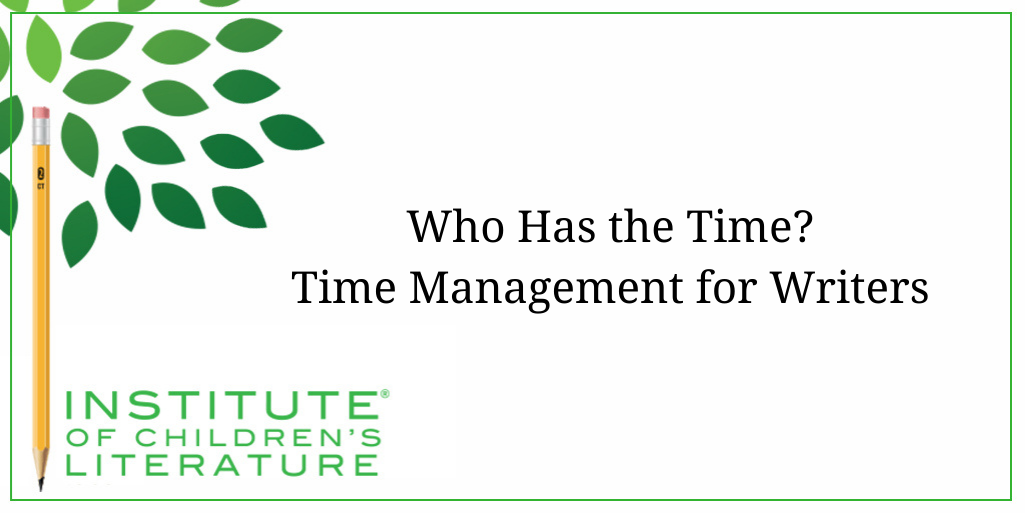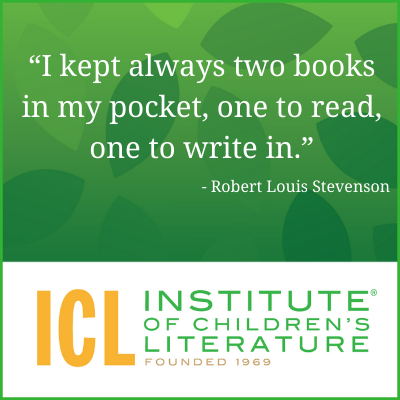
Your Voice or Theirs?
Voice, whether your natural writing voice or the voice of a character, comes from an emotional place. Jan Fields gives us exercises to develop these voices.

We teach our students how to write and get published!
View our Course Catalog >
Time management is a challenge for everyone. In theory, the time we’ve spent dealing with the pandemic handed us time that would once have been spent on activities that we considered too risky during a pandemic. But how much did it really give us? For families with children, any additional hours spent at home were also spent with children struggling with online school and needing extra attention. There is also the reality that stress isn’t exactly conducive to creativity. For many, extra hours didn’t translate to extra creation. Instead, it meant extra time to worry about the present and the future. Given all of that, it’s probably not fair to beat ourselves up if the pandemic didn’t send us all to our computers to pen a novel, or even a picture book.
Now, for many, life is settling into the new normal, which is different from the old normal and not without extra dollops of stress, as well as extra struggle to find a schedule that lets us meet all life demands as well as giving us time to create. With this new normal, we need to take a new look at time management for writers if we want to get back to writing.
The first step to improving your time management is an unblinking look at how you spend your time. Take a week, and carry a notebook to log everything you do and how long you do it. This is often the most eye-opening step toward effective time management since many of us discover how many pointless activities eat up our time. I know if I could get back all the time I’ve spent on Facebook, I could certainly add a few more books to my total.

As you look at the way you spend your day, don’t overlook time spent at work. Many writers have carved out time at work to do some of their writing, or writing related activities. Mining your day for time to put into writing means looking for those periods where you’re either engaging in optional activities (Facebook, for instance, or television) or engage in mindless activities (waiting in your car for your kids to get out of school or waiting in waiting rooms for doctors or dentists). Part of expanding the time you spend on writing and things necessary for writing means deciding that writing is important, so time mined for writing is important too.
Writing tends to encompass a great many activities. There’s research, outlining, and other forms of planning and prep, all of which take time. But many of these activities can be combined with other activities in our day. A smart phone, for example, can allow you to do research for your story while waiting in a line or eating your lunch at work. Planning and brainstorming tend to merge very nicely with activities like cleaning or showering. But getting the words down is the thing that needs actual writing time. So when you’ve carved out the time you intend to spend writing, use it for putting words to paper (or computer) over other writing related activities.
One thing I do a good bit for my writing is research. Right now, I’m working on a novel due soon, but I’m also tinkering with some ideas and research for the next novel I’ll be outlining. The future novel is going to be set far outside the part of the world where I live. Therefore, I need to become fluent in many things about a setting where I’ve never been (and where I couldn’t possibly go these days). I use Google Maps to get used to roads (sometimes even “walking” a road virtually to get a feeling for what someone would see if they walked that same road). I use YouTube to find tourist videos made in the area. These videos tend to give me all kinds of small details that wouldn’t be available any other way. These days, travel video bloggers can offer amazing looks at places all over the world, as well as sharing sensory details such as what you might smell or feel when there. Because this research is so important to my book, I’ll often make lists of the things I need to know so that I’m ready to make the best use of the research time and not have to return to the same source over and over as new questions pop up. Any time I can pre-plan to take care of groups of research necessities all at once, I’m making better use of my time.
When writing, I like the world around me to be very quiet. So I’m not one of the people who thrives when writing in coffee shops. In those kinds of setting where there are many different sorts of sensory distraction, I’ll fall for every single one and accomplish virtually nothing. At the same time, I often need to “clear my head” at different spots in my writing. When I complete one scene and need to move into another with a different setting, I’ll often benefit from getting up and walking around, maybe making a cup of tea, or checking the mail. This kind of mental palate cleansing helps me clear out the old and bring in the new. To anyone watching, it might look like I take a lot of breaks or goof off, but I’m merely working with my own process. Don’t feel you have to force yourself to fit in someone else’s process. If I became very anti “breaks,” my writing would suffer because I would struggle whenever I had to move from one scene to another or one chapter to another. My process may look wasteful but it’s actually the best use of my time. You may be an author who thrives if removed from all humans and left to scribble in notebooks. Or you might be a writer who needs the bustle and noise of a coffee shop. Whichever you are, don’t be worried if someone else has totally different needs. Give yourself permission to need what you need, then keep your needs in mind when organizing in your time.
In the vernacular my daughter is prone to use: you do you.
With over 100 books in publication, Jan Fields writes both chapter books for children and mystery novels for adults. She’s also known for a variety of experiences teaching writing, from one session SCBWI events to lengthier Highlights Foundation workshops to these blog posts for the Institute of Children’s Literature. As a former ICL instructor, Jan enjoys equipping writers for success in whatever way she can.

Voice, whether your natural writing voice or the voice of a character, comes from an emotional place. Jan Fields gives us exercises to develop these voices.

Voice is something publishers want, but it’s an elusive thing to understand. Today, we discover ways to develop our own voice and the voices of our characters.

When writing conflict, inner and outer conflicts are not two separate things. Outer conflicts offer an opportunity to explore inner ones better. Find out how.
1000 N. West Street #1200, Wilmington, DE 19801
© 2024 Direct Learning Systems, Inc. All rights reserved.
1000 N. West Street #1200, Wilmington, DE 19801
© 2024 Direct Learning Systems, Inc. All rights reserved.
1000 N. West Street #1200, Wilmington, DE 19801
© 2024 Direct Learning Systems, Inc. All rights reserved.
6 Comments
This was helpful and much needed! the issue of the need for information during the pandemic driving up phone/computer touches really resonated with me. Time to break that habit.